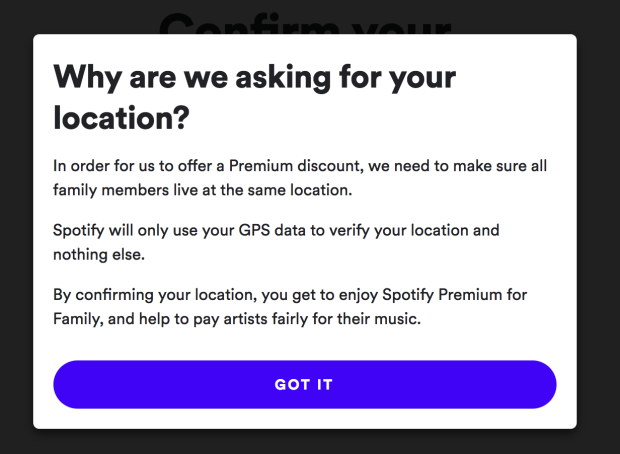A hot potato: Account and password sharing is an issue that isn't unique to Spotify as services like Netflix also grapple with the matter. Spotify is morally justified in trying to restrict family plan usage to qualified participants but asking people to verify their address via GPS is only going to cause tension.

It’s been nearly four years since Spotify announced its family plan, a discounted rate that extends membership benefits to multiple listeners. Pricing initially started at $14.99 for two users but eventually, the company sweetened the deal by allowing up to six people under a single account for the same cost.
In the spirit of the plan, members of a family plan should presumably, well, be family members and according to Spotify’s terms and conditions, be living under the same roof.
According to Quartz and a few other publications, Spotify has recently been sending some family member subscribers an e-mail asking them to confirm their home address via GPS. “If you don’t confirm, you may lose access to the plan,” the message reads.

Spotify is clearly trying to crack down on users that are abusing the spirit of the family plan – say, friends that may be pitching in to lower the out-of-pocket expense versus having a single premium account. But Spotify’s approach is flawed in that it assumes all families live in the same residence. You can have family members that don’t live in your house – virtually everyone does. Just because you don’t live at the same address doesn’t mean you aren’t technically family.
Spotify says it will only use GPS data to verify a user’s location but in this day and age of heightened privacy where many are concerned with excessive data collection practices, that isn’t very reassuring.
Like other issues in tech, it's a problem without a clear solution.
https://www.techspot.com/news/76678-spotify-cracking-down-users-who-exploit-family-plan.html